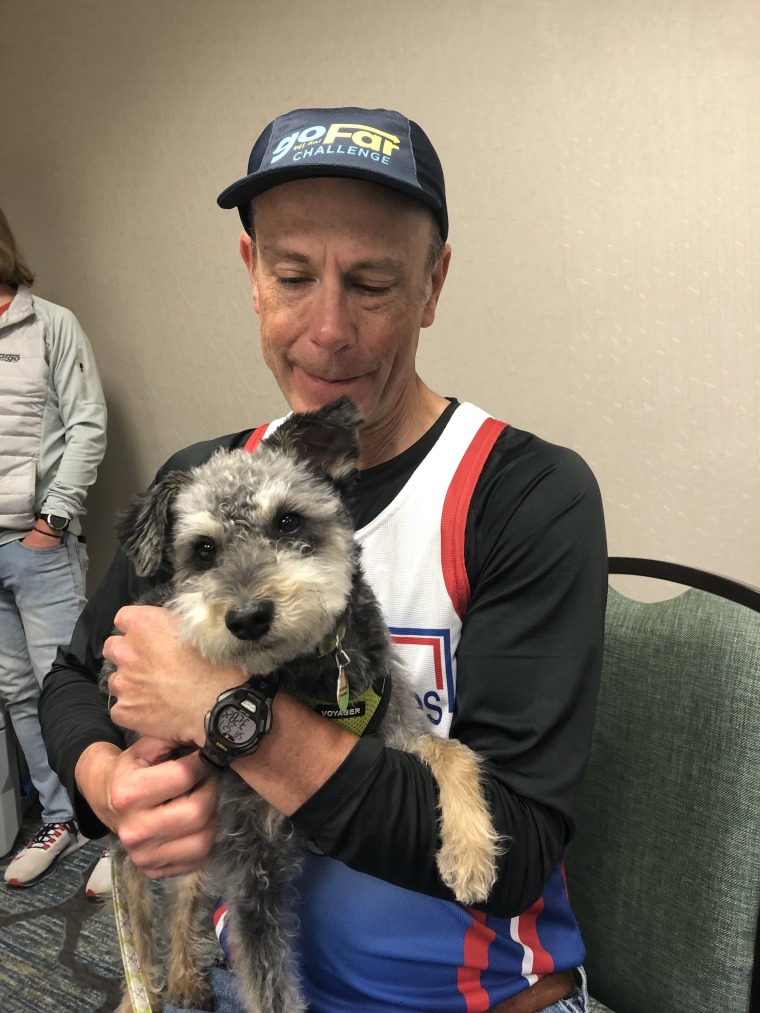When 61-year-old Tom Perri began running as a teen, he never imagined he’d go on to complete more than 2,000 races, logging over 100,000 lifetime miles.
He’s run in all 50 states — six times.
“I’m a true Gemini. I like to do things twice… and (then) it was the third, fourth, fifth, sixth (time),” Perri, who lives in Maple Grove, Minnesota, told TODAY’s Al Roker. “Now my goal, ultimately, is 14 times for the 50 states.”
But three years ago, Perri noticed a difference in his finish times. He was slowing down, which he at first attributed to overtraining, possible Lyme disease or maybe anemia. When he went in for a full physical exam, tests showed a different problem: his prostate-specific antigen (PSA) blood level was at more than 92 — an abnormally high reading.
Perri was diagnosed with stage 3 prostate cancer. A few months later, he learned the cancer had spread, changing the diagnosis to a stage 4.
The runner, who is fit, eats well and has no family history of prostate cancer, recalled his shock.
“It was really confusing, actually. Like, I did everything right in my life… So to have that kind of diagnosis was a total surprise to me, because I statistically wasn’t in a category that I should be in,” he said.
September is Prostate Cancer Awareness Month, with almost 269,000 men expected to be diagnosed with the disease this year, according to the American Cancer Society.
Prostate cancer is the second leading cause of cancer death in American men, behind lung cancer, the organization noted.
Symptoms include problems urinating or the need to urinate more often, especially at night; blood in the urine; and kidney or flank pain.
About 60% of cases involve men who are 65 or older. Besides age, risk factors include race — the disease develops more often in Black men.
After Perri was diagnosed in 2019, various cancer treatments followed, including surgery to remove his prostate. It was one of the few times in his life when Perri didn’t run for almost eight days straight. But after he recovered, Perri returned to running — always thinking about the next race. He has events planned three years in advance.

Al Roker, who underwent prostate cancer surgery in 2020, noted he’s always thinking about his next PSA test, but Perri said he doesn’t focus on that number and keeps planning ahead. When people ask him about his favorite race, he now says it’s his next race because it’s not guaranteed.
Perri credited his dog and “running partner,” Otto, for motivating him to keep moving.
“He was the one that got me off the couch when I had the prostate surgery. He takes me out for walks, we take naps together. We do it all together,” he said.
In May, Perri ran his 600th marathon. The next goal is 650 marathons, after which he’s planning to complete 700.
Whenever he crosses the finish line, he goes back and runs with other people to help them finish. He called the running community one of the biggest support groups he could have.

“I love to run, I love to help other people,” he said.
“We can’t control what happens to us in life… Cancer can tell me what I can’t do, but it will never tell me what I can do. And that’s why I can still run.”
Perri believes he can beat the prostate cancer. In fact, most men diagnosed with the disease don’t die from it, with more than 3.1 million prostate cancer survivors living in the U.S., the American Cancer Society noted.

